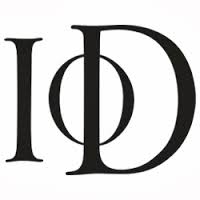IoD seeks input on draft code of conduct to restore trust in business leadership

The Institute of Directors has today published a consultation document on a Code of Conduct for directors.
This Code of Conduct is a practical tool to help directors make better decisions. It also provides organisational leaders with a behavioural framework that can help them build and maintain the trust of the wider public in their business activities.
The code represents a voluntary commitment and is not intended to hold back directors or create a new burden of compliance. It is structured around six key ‘Principles of Director Conduct’:
- Leading by Example – demonstrating exemplary standards of behaviour in personal conduct and decision-making.
- Integrity – acting with honesty, adhering to strong ethical values, and doing the right thing.
- Transparency – communicating, acting and making decisions openly, honestly and clearly.
- Accountability – taking personal responsibility for actions and their consequences.
- Fairness – treating people equitably, without discrimination or bias.
- Responsible Business – integrating ethical and sustainable practices into business decisions, taking into account societal and environmental impacts.
The Code of Conduct was developed for the IoD by a Commission chaired by Lord McNicol of West Kilbride, and was published with the support of BDO.
Jonathan Geldart, director general of the Institute of Directors, said: “We can be rightly proud of UK business organisations much of the time. However, on occasion, business decision makers fall short of what society expects.
“Those at the top may lose touch with what really matters – namely the need to demonstrate exemplary values and integrity in both their business decisions and their personal behaviours.
“As a result, we have in recent years observed corporate scandals – including at the Post Office, Carillion and BHS – which have exerted a negative effect on the esteem in which business leadership is held.
“The purpose of this code is to help UK business win back public trust by embedding the ethics and values that are already adopted as a matter of course by most responsible business leaders.
“Written by directors for directors, it offers a roadmap that can help individual directors make the right decisions for themselves and their organisations, often in the face of complex challenges and trade-offs.”
Commenting on the publication, Lord McNicol said: “The role of director has never been more vital, complex and challenging. Directors make decisions that are fundamental to the success of their organisations, and which have life-changing consequences for their employees, customers and other stakeholders.
“Given the extent of their responsibilities, it is essential that society trusts them to do the right thing.
“Most of the undertakings contained within the code are matters of common sense. However, at crucial moments, when key decisions have to be made, the code may serve as a useful tool that directors can refer to when asking themselves the question: what would a responsible director do in this situation?”
Ian Bennington, head of governance, risk and compliance at BDO, said: “We were delighted to support the IoD in the development of its first voluntary code of conduct for directors.
“This will prove useful for those stepping up into director roles for the first time. It will also support existing directors to assess and reflect on their own ways of working.
“Fundamentally, it’s about encouraging ethical and responsible decision-making that benefits individual organisations and drives up standards across all UK businesses.”
The Institute of Directors is seeking views on the Code of Conduct from the business community and the general public by Friday 16 August 2024.







